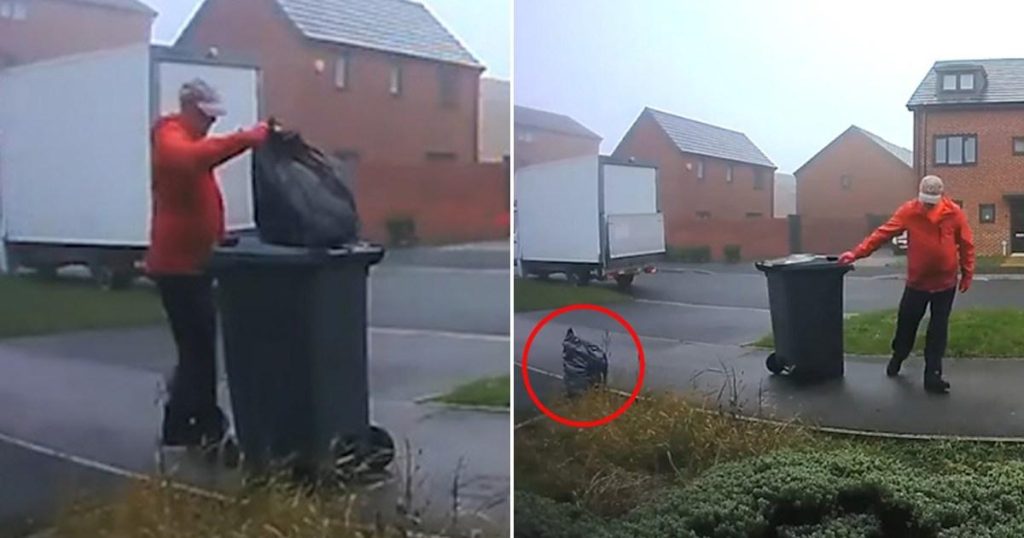This incident revolves around a seemingly minor act by a refuse collector in Hull, England, which sparked significant online debate and highlighted broader frustrations with waste collection services. A resident, Sam Turner, captured ring doorbell footage of the binman removing a rubbish bag from the top of his bin and placing it on the pavement, instead of collecting it. After emptying the bin itself, the worker returned the bin to its original position but left the discarded bag on the street. Turner shared the video on social media platform X (formerly Twitter), expressing his dissatisfaction and questioning the value of the council tax he pays for waste collection services.
The video quickly gained traction online, eliciting a range of responses. Many users criticized the binman’s actions, labeling him as lazy and unprofessional. Some commenters shared similar experiences with their local waste collection services, citing instances of rubbish being left behind, bins not being emptied properly, and general disregard for proper waste disposal procedures. These anecdotes painted a picture of widespread dissatisfaction with the quality of refuse collection services, suggesting that Turner’s experience wasn’t an isolated incident.
However, not all online reactions were condemnatory. Some users defended the binman, suggesting that he might have been adhering to specific regulations regarding overflowing bins or improperly placed rubbish bags. This perspective introduced the possibility that the binman’s actions were not arbitrary but rather based on established protocols, although these protocols were not immediately clear from the available information. The contrasting viewpoints highlighted the ambiguity of the situation and the need for further clarification from the involved parties.
Turner’s video and the subsequent online discussion brought to light the often-overlooked importance of waste management services and the impact of their performance on public perception. The incident became a microcosm of larger issues within the waste management sector, including staffing challenges, budget constraints, and evolving regulations. The public scrutiny generated by the video underscored the need for transparent communication and accountability within local councils and waste management services to address public concerns and maintain trust.
Beyond the immediate controversy surrounding the binman’s actions, the online conversation touched on related issues such as the perceived value for money of council services and the declining practice of offering holiday tips to service workers. Some users questioned whether the level of service they received justified the council tax they paid, while others lamented the disappearance of traditional gestures of appreciation for essential workers. These tangential discussions reflected broader societal trends and shifting attitudes towards public services and labor practices.
The incident served as a reminder of the essential role of waste management in maintaining public health and environmental sustainability. Efficient and reliable waste collection is crucial for preventing the spread of disease, minimizing pollution, and promoting responsible resource management. The online debate sparked by the video highlighted the need for ongoing investment and improvement in waste management infrastructure and practices to meet the evolving needs of communities and ensure the sustainability of these essential services. The controversy also emphasized the importance of clear communication and public engagement to foster understanding and collaboration between service providers and the communities they serve.




